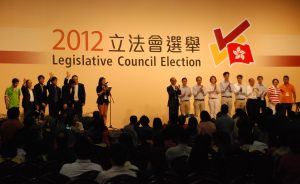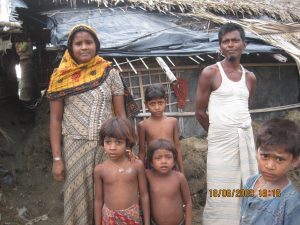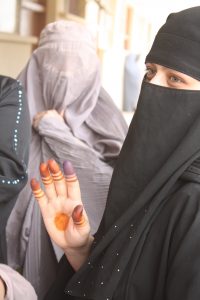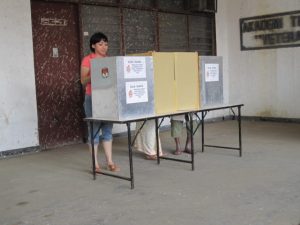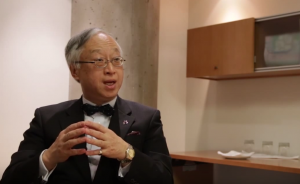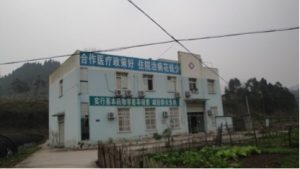Decision Time for Hong Kong Democracy Fast Approaching
Memo #288 With a raft of elections in the offing, Beijing must soon decide if it will give Hong Kong its promised democracy. By Jonathan Manthorpe – jonathan.manthorpe [at] gmail.com This June 4 will mark the 25th anniversary of the Chinese government’s crackdown on the pro-reform demonstrators in Beijing’s Tiananmen Square. Nowhere will that memory […]
“A Legacy for the People:” The Columbia Basin Trust as Model for the Angat River Basin?
Memo #287 By Brett Dimond – brett.dimond [at] gmail.com The issue of centralized control over water resources has not always been confined to developing countries. In 1964, Canada and the United States ratified the Columbia River Treaty, whose primary purpose was to coordinate the operation of the river for flood control and hydropower generation. Little […]
Thirsty Cities, Dying Rivers, Uncertain Futures: A Tale Too Often Told
Memo #286 By Brett Dimond – brett.dimond [at] gmail.com A central principle for the good governance of common-pool resources is to match allocation and provision rules. In other words, those who appropriate a resource must do so in a way that is viewed by those involved as legitimate. In the Philippines, the Constitution declares water […]
The Rohingya, Ethnic Minorities, and Myanmar’s Enduring Dilemma
Memo #285 By Kazi Fahmida Farzana – fahmida [at] uum.edu.my Will Myanmar’s Political Transition be able to Solve the Lingering Nationality Question of its Ethnic Minorities? Myanmar in recent years has been experiencing substantive political changes in its political system with implications for its domestic policies and international relations. Since its November 2010 national elections, […]
Afghanistan Elections: Why Should We Care?
Memo #284 By Dur-e-Aden – dur-e-aden [at] hotmail.com This week Afghans headed to the polls to help usher in a transfer of power from one democratic government to the next. While some observers hail this as a major achievement, others worry what lingering issues of rampant Taliban violence, ethnic politics, widespread corruption and fraud during […]
Of Sea Squirts and FTAs
Memo #283 By Hyung-Gu Lynn – hlynn [at] mail.ubc.ca Ten years ago today, April 1, 2004, the Chile-South Korea free trade agreement (FTA) came into effect. This landmark agreement marked Chile’s first FTA with an Asian country, and South Korea’s first FTA altogether. But what do sea squirts (Korean meonggye/Spanish piure) have to tell us […]
Who Will Indonesia’s “Homeless” Voters Support?
Memo #282 By Nathan Allen – n.allen [at] alumni.ubc.ca Indonesian voters will face significantly fewer choices in the upcoming 2014 legislative election. Where 38 parties competed in 2009, only 12 will appear on the ballot in 2014. For 16% of the electorate, their preferred party in 2009 will no longer be an option. To put […]
Gaps in the Protection of Civilian Victims of Armed Violence
Memo #281 By Ramesh Thakur – ramesh.thakur [at] anu.edu.au As demonstrated by recent events in Sudan, Sri Lanka, Libya, and Syria—and earlier in Rwanda, the Balkans and East Timor during the 1990s—the numbers of civilians killed in contemporary armed conflicts is intolerably high. Their plight is a lasting stain on an internationalized human conscience. Our […]
Japan’s Economy & Trade (A Video Interview with Watanabe Yorizumi)
Memo #280 Featuring Watanabe Yorizumi Last month the Asia Pacific Memo sat down with Watanabe Yorizumi, since 2005 a member of the Faculty of Policy Management at the Graduate School of Media and Governance, Keio University. Professor Watanabe came to his academic career with a distinguished diplomatic background, having served several appointments in Japan’s foreign service, […]
Rebuilding a Broken House: Healthcare Reform in China
Memo #279 By Jiong Tu – jt457 [at] cam.ac.uk Since the 1980s, when China began to adopt market reforms, its health care system experienced a transition from fully state-run and financed care toward more privately financed and delivered health care. These changes led to soaring medical fees, minimal medical insurance coverage, and poor access to […]
